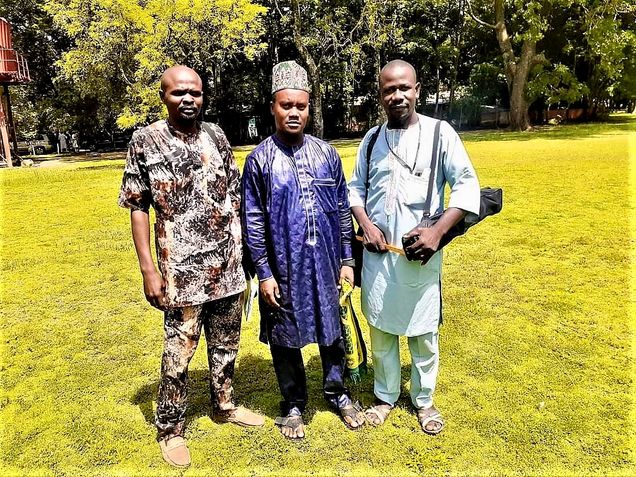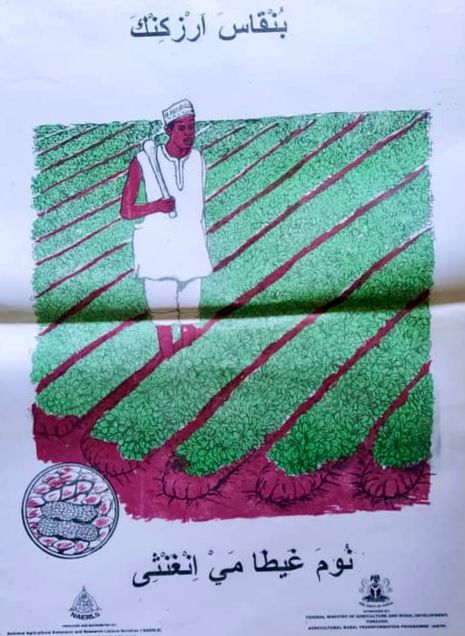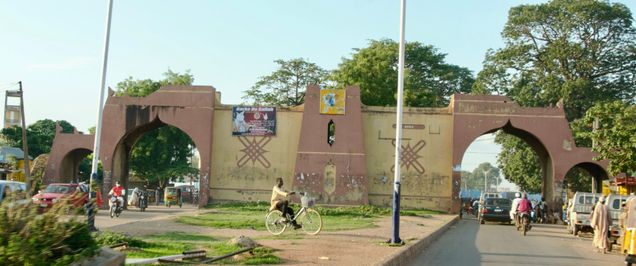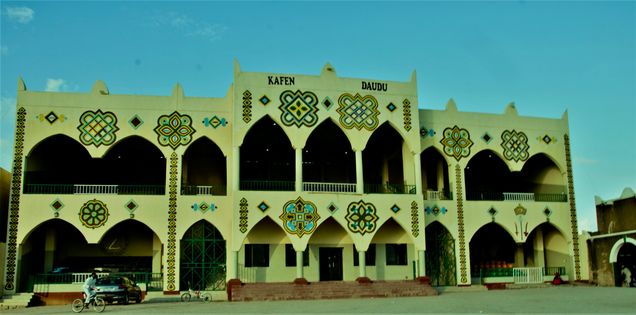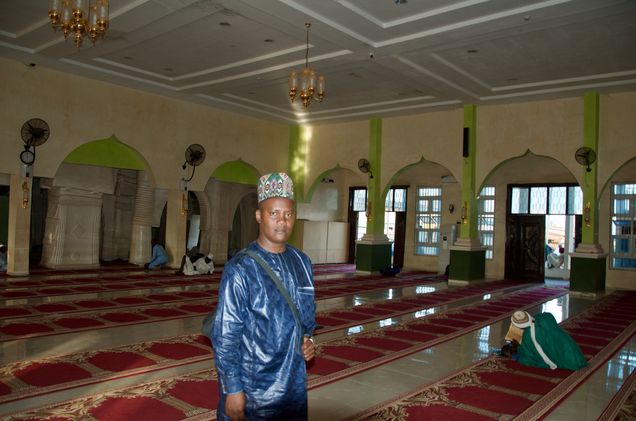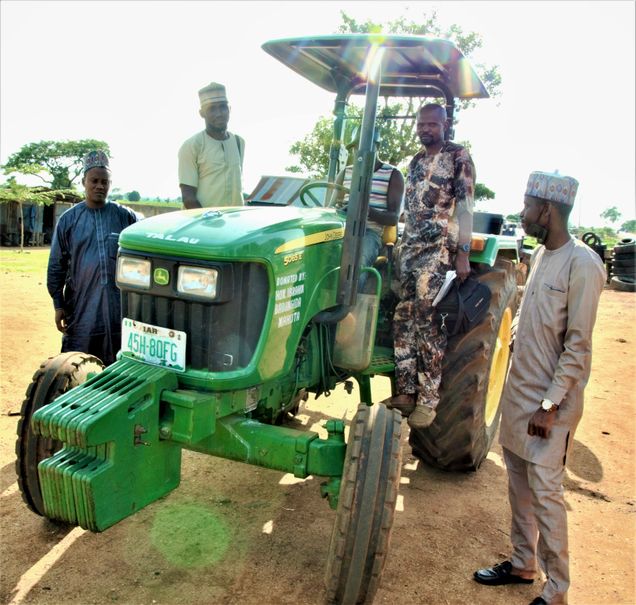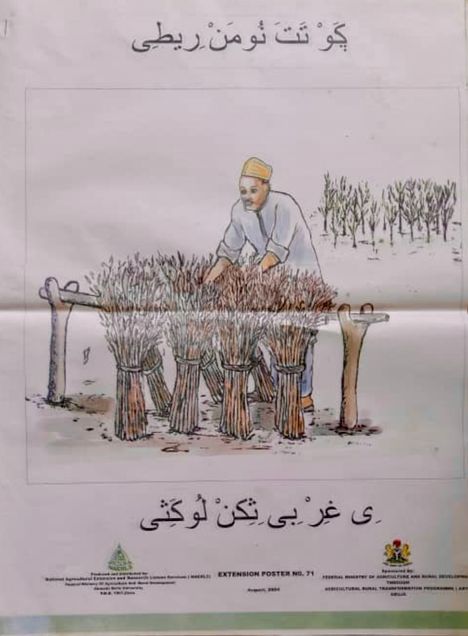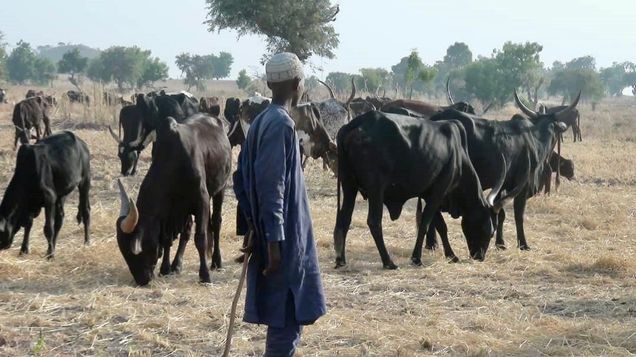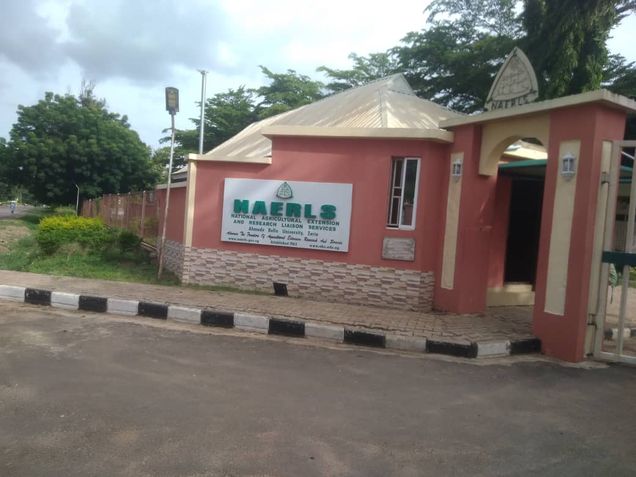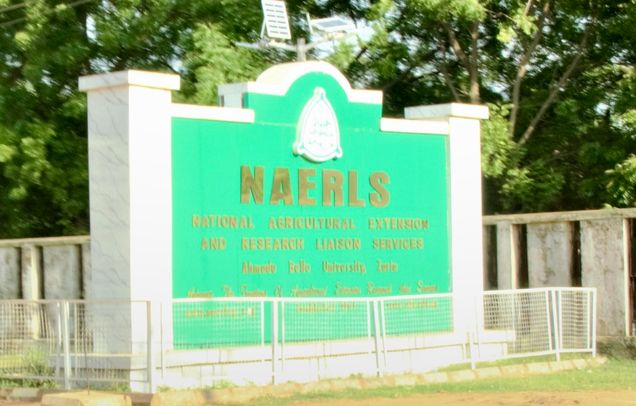Unit 1: Malam Salihu Sulaiman
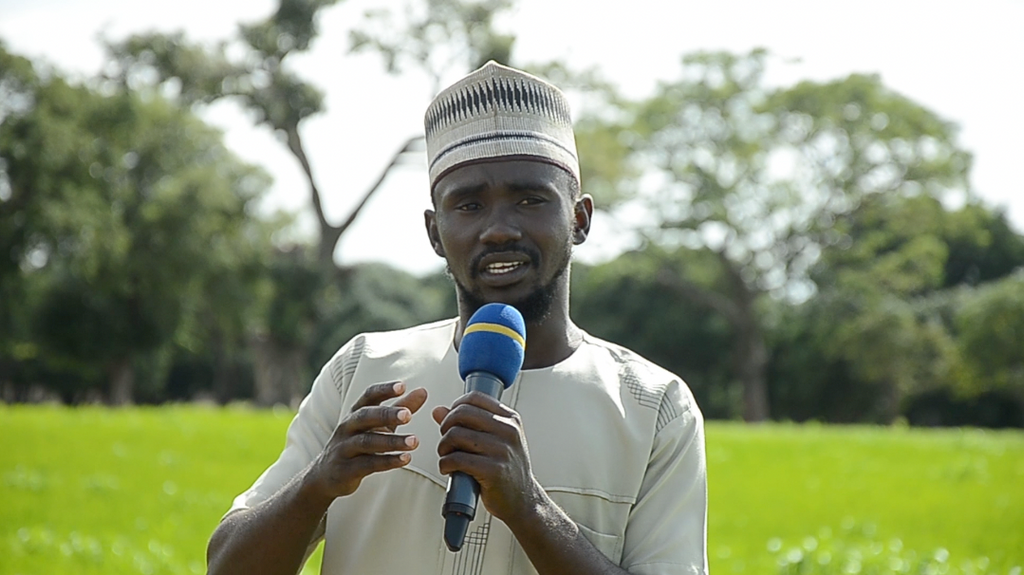
Metadata
| Title | Conversation with Malam Salihu Sulaiman |
| Interviewer | Mohammed Bara’u Musa |
| Subject | Short biography of Malam Salihu Sulaiman; discussion of Hausa Ajami manuscripts on agriculture, horticulture, and animal husbandry. Malam Salihu also talks about how useful Ajami has been in the development of agriculture and the economy at large and how to revive its use. |
| Content | Malam Salihu Sulaiman is a 30-year old Hausa man born in Samaru, Zaria. He is married with a son and is an alumnus of Ahmadu Bello University in Zaria where he currently serves as a librarian. He is currently enrolled in a Master’s program in Library and Information Sciences at the same university. Many of the manuscripts that Malam Salihu showed the research team were either in Arabic or Hausa Ajami. He himself is an Ajamist and a librarian, which made it easy for him to identify the ones we were interested in. In the interview, Malam Salihu explains the critical role that Hausa Ajami manuscripts have played, especially in the preservation and development of agriculture and the economy, over some hundreds of years. He further highlighted the place of Ajami in the people’s history, culture, and civilization. He also noted the challenges that led to the dwindling use of Hausa Ajami in agriculture and suggested a way forward. |
| Language | Hausa |
| Script | Hausa Ajami |
| Location | College of Agriculture, Ahmadu Bello University, Samaru, Zaria, Kaduna State |
| Pedagogical content/application | Includes relevant linguistic, stylistic, and cultural skills as identified in our assessment guidebook/ ACTFL guidelines |
| Access condition and copyright | These materials are subject to copyright and are distributed under the terms of the Creative Commons Attribution-NonCommercial 4.0 License, which permits non-commercial use, distribution, and reproduction in any medium, provided the original author and source are credited. For use, distribution or reproduction beyond these terms, contact Professor Fallou Ngom (fngom@bu.edu). |
| Contributors | Fallou Ngom, Jennifer Yanco, Mustapha Kurfi, Daivi Rodima-Taylor, Alison Parker, and Frank Antonelli. |
| Required citation information | Fallou Ngom (PI), Jennifer Yanco, Mustapha Kurfi, and Daivi Rodima-Taylor. 2023. “Conversation with Malam Salihu Sulaiman.” https://sites.bu.edu/ria/hausa/hausa-unit-1/ |
Videos
Hausa with English Subtitles
Hausa with Latin Script Subtitles
Community Images
(click on the image for a larger view)
Pedagogical Activities
Glossary
- Albasa: Onions
- Bayai: Information, news, details
- Ciyawa: Weed, unwanted grass
- Dabaru: Techniques, strategies (singular: dabara)
- Dabarun noma: Farming techniques, methods
- Damuna: Rainy season, wet season, spring
- Dawa: Sorghum
- Feshi: Spray
- Gona: Farm
- Gudumawa: Contribution, assistance, help
- Haɓaka: To improve, enhance, boost, help, revamp
- Ƙara wa juna sani: Conference, seminar, workshop
- Manoma: Farmers (singular, manomi)
- Masara: Maize, corn
- Muhimmanci: Importance, significance, vitality
- Rani: Dry season, summer
- Shawarwari: Bits of advice (singular, shawara)
- Takardu: Documents, papers (singular, takarda)
- Taki: Fertilizer, manure
- Taron ƙara wa juna sani: A seminar, workshop, or conference where people share important ideas
- Tasiri: Impact, influence, power, effect
- Tawaga: Delegation, team
- Tsani: Intermediary, gatekeeper; also ladder or scaffold
- Wake: Beans
- Zamani: Contemporary, civilized, modern
Notes
- Albasa ba ta yi halin ruwa ba: “An onion does not take on the character of water.” This proverb is used when talking about someone who is from a good family or well raised but deviates from societal norms and expectations. An example would be the son of a religious cleric who is an open sinner or a criminal. The onion is used as a metaphor because an onion is very strong. No amount of watering will change that; it remains an onion and will not take on the qualities of the water.
- Ci-rani: Dry season hassles. It refers to the period when farmers leave their homes and head for other locations, usually in the city, in search of short-term employment instead of staying back home jobless. After this dry season period, they return to their homes to farm during the rainy season.
- Ciyawa ba ta kada wasu sai yaryaɗi: “All that glitters is not gold.” The saying implies that appearances can be deceptive, and not everything is valuable that looks valuable or shiny on the surface.
- Damuna uwar albarka: “The rainy season is the mother of generosity.” Although the statement sounds specific to the rainy season, it is a Hausa idiom used to praise people who are kind to others. Because the rainy season brings much joy for rural Hausa people, it is used as a metaphor for generous people. Most marriages, especially in rural areas, occur during or immediately after the rainy season (damuna).
- Gudumawa daɗi gare ta: “Contributions, gifts, help and donations are pleasing and consoling.” This is an adage that is used to express a mood or feeling of gratitude, especially during an event, ceremony, or festivity. It is a tradition of the Hausa people to give gifts, donations, contributions, or assistance to people, particularly during emergencies such as accidents, floods, fire outbreaks; and at births, marriages, naming ceremonies, and so on.
- Noma ba taki wahala ne: “Farming without fertilizer is trouble.” This is an adage that farmers use to express their appreciation of modern farming techniques, including adopting fertilizers. It is evident that those who use fertilizer achieve better yields than those who do not.
- Noma na duƙe tsohon ciniki: Duk wanda ya zauna duniya, kai ya tarar: “Farming is the oldest of professions: Everyone who lives on earth is connected with it.” This saying conveys three points: farming is not for lazy people; farming is not a new activity despite the fact that it has been modernized; and Hausa people are proud to be associated with farming as a profession.
- Takin zamani na feshi ya fi: “Spray fertilizer is superior to others.” This statement is common among farmers who use the modern farming technique of spray fertilizers. This is a statement that compares modern farming techniques such as spray fertilizers to traditional manure fertilizers and other types.
- Zamani kowa da na shi: “Everyone has his reign.” This means that nothing lasts forever: neither one’s position nor one’s rank. It also refers to the fact that each regime comes with its policies, which will not last forever.
Exercises:
Comprehension || Writing || Listening / Speaking and Conversation || Cultural Competence
Comprehension: Video
Comprehension: Image
Writing
Listening / Speaking and Conversation
- Rubuta tambayoyin guda shida (6), ka/kina mai amfani da wandannan kalmomi: Dawa, Wake, Albasa, Masara, Manoma, Dabaru.
Cultural Competence
- Zaɓi wani abu daga faifan bidiyon, rubuta kwatankwacinsu a al’umarka/ki. Rubuta abubuwa da suka yi kama da juna da wandanda suka bambanta.
